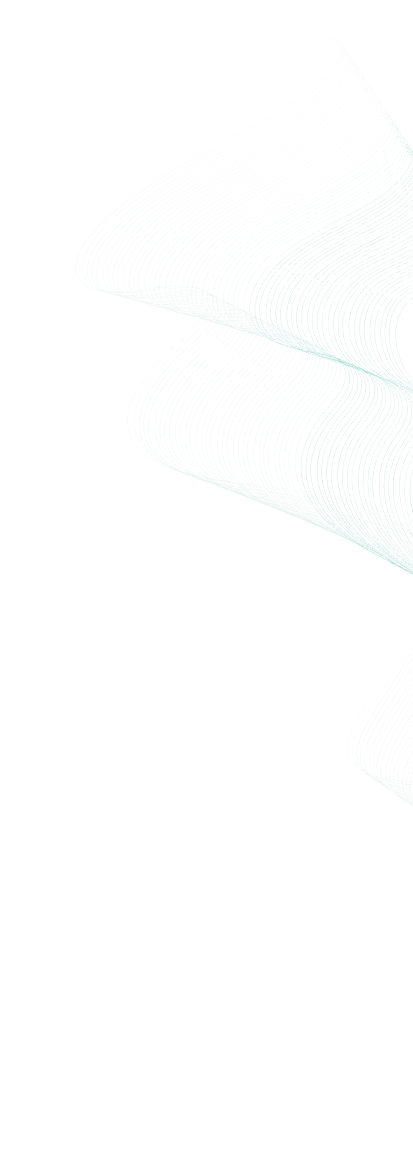Exploring The Iot Potential: Salto Systems In Smart Cities

Exploring The Iot Potential: Salto Systems In Smart Cities
In a world where connectivity is rapidly becoming the norm, the Internet of Things (IoT) has emerged as a powerful force shaping the landscape of smart cities. Coincidentally, Salto Systems, a leading player in the field of access control solutions, has harnessed the potential of IoT to revolutionize the way cities function.
With their innovative technologies and forward-thinking approach, Salto Systems has paved the way for a new era of smart cities that are safer, more efficient, and interconnected like never before.
This article aims to explore the IoT potential of Salto Systems in smart cities, delving into their key features and innovations, examining real-life case studies, and discussing their role in shaping the future of urban living.
By understanding the impact of Salto Systems within the context of IoT-driven smart cities, we can gain insights into the transformative power of technology and its ability to create a sense of belonging and cohesion within our urban environments.
Key Takeaways
- Salto Systems is utilizing IoT to revolutionize city functioning in smart cities.
- IoT enables monitoring and management of traffic flow, energy consumption, public safety, and waste management in smart cities.
- Salto Systems offers advanced access control technologies, electronic locks, and readers for enhanced security and convenience.
- Salto Systems’ solutions provide real-time data on occupancy, usage patterns, and user preferences for resource allocation optimization in smart cities.
Overview of IoT in Smart Cities
The integration of IoT technologies in smart cities has led to an enhanced urban environment where data-driven decision making and efficient resource management are prioritized.
IoT in smart cities involves the interconnectivity of various devices and sensors, enabling the collection and analysis of real-time data. This data can then be used to optimize city operations, improve services, and enhance the overall quality of life for residents.
By leveraging IoT, cities can monitor and manage traffic flow, reduce energy consumption, enhance public safety, and improve waste management. Additionally, IoT enables the implementation of smart grids, intelligent transportation systems, and smart buildings, further enhancing the sustainability and efficiency of urban areas.
With the potential to revolutionize urban living, IoT technologies have become a key focus for smart city initiatives.
In the following section, we will explore the introduction of Salto Systems, which is a prime example of IoT technology in smart cities.
Introduction to Salto Systems
This discussion will focus on Salto Systems and its role in enhancing security in urban environments, improving convenience, and increasing efficiency.
Salto Systems is a leading provider of access control solutions that leverage IoT technology to offer advanced security features. By integrating IoT devices and sensors, Salto Systems enables real-time monitoring and remote management of access points, ensuring a higher level of security in urban settings.
Additionally, Salto Systems’ smart access control solutions streamline the process of granting access to authorized individuals, improving convenience and efficiency in managing large-scale access control systems.
Enhancing Security in Urban Environments
Enhancing security in urban environments involves the implementation of IoT solutions such as Salto Systems, which contribute to a safer and more protected cityscape.
- Firstly, Salto Systems utilizes advanced access control technologies that enhance security measures. These technologies include biometric authentication, smart card readers, and mobile applications, enabling seamless and secure access to buildings and restricted areas.
- Secondly, Salto Systems integrates with other IoT devices and sensors, allowing for real-time monitoring of security threats. This integration enables automatic alerts and notifications to be sent to security personnel, facilitating quick response times and minimizing the potential for security breaches.
- Lastly, Salto Systems leverages data analytics to identify patterns and trends in security incidents, enabling proactive measures to be taken. By analyzing data collected from various sources, such as surveillance cameras and access logs, the system can identify potential vulnerabilities and recommend appropriate security measures.
Transitioning to the next section, improving convenience and efficiency, Salto Systems not only enhances security but also offers a range of benefits for urban environments.
Improving Convenience and Efficiency
Improving convenience and efficiency in urban environments involves the implementation of smart access control solutions that leverage advanced technologies and data analytics to optimize operations and enhance user experiences.
These solutions enable seamless and secure access to various facilities and services, reducing the need for physical keys and manual processes.
By integrating IoT devices and sensors, smart access control systems can provide real-time data on occupancy, usage patterns, and user preferences. This data can be analyzed to identify trends, optimize resource allocation, and improve overall operational efficiency.
Additionally, features such as mobile access and remote management enable users to conveniently and securely control access to different areas, reducing the need for physical presence and enhancing convenience.
The key features and innovations of Salto Systems will be explored in the subsequent section, highlighting how they contribute to the advancement of smart access control solutions.
Key Features and Innovations of Salto Systems
Key features and innovations of Salto Systems include advanced access control technologies and solutions designed to enhance security and convenience in smart cities.
Salto Systems offers a range of access control devices, such as electronic locks and readers, that utilize state-of-the-art technologies like RFID and Bluetooth. These devices can be seamlessly integrated into existing infrastructure, allowing for efficient management and monitoring of access points.
Additionally, Salto Systems’ solutions provide real-time data and analytics, enabling smart city operators to make informed decisions regarding security protocols and resource allocation.
The company also offers cloud-based platforms that enable remote management and control of access points, further enhancing convenience and flexibility.
By leveraging these key features and innovations, Salto Systems empowers smart cities to create safer and more efficient environments for their residents and visitors.
This sets the stage for exploring case studies and success stories that showcase the tangible benefits of implementing Salto Systems’ solutions.
Case Studies and Success Stories
One notable example of the impact of Salto Systems’ access control solutions can be seen in the transformation of a high-crime urban area into a safe and thriving community. By implementing Salto’s advanced access control technology, local authorities were able to monitor and control access to various areas, reducing criminal activity and improving overall safety.
The system allowed for real-time monitoring of entrances, exits, and restricted areas, enabling quick response to any security breaches. Additionally, the integration of Salto’s access control solutions with other smart city technologies, such as surveillance cameras and emergency response systems, further enhanced the effectiveness of the security measures.
This successful case study demonstrates the power of IoT in creating safer and more prosperous communities. Looking forward, Salto Systems will continue to play a vital role in the future development and expansion of IoT in smart cities, contributing to the overall improvement of urban living environments.
The Future of IoT in Smart Cities and Salto Systems’ Role
Despite the seemingly limitless possibilities and optimistic visions surrounding the integration of Internet of Things (IoT) technology in urban environments, it remains to be seen how effectively Salto Systems will navigate the complex challenges and ethical considerations that arise from the implementation of these systems in the future.
As cities become increasingly interconnected and reliant on IoT devices, the role of Salto Systems will be crucial in ensuring the security, efficiency, and sustainability of smart cities. However, there are concerns regarding the potential privacy breaches and vulnerabilities that may arise from the massive amount of data collected by IoT devices.
Salto Systems must prioritize the development of robust security measures to protect against cyber threats and ensure the trust and confidence of both city authorities and citizens. Moreover, ethical considerations, such as the responsible use of data and the potential for discrimination, must also be addressed.
To truly harness the potential of IoT in smart cities, Salto Systems needs to proactively engage with stakeholders, collaborate with experts, and continuously innovate to overcome these challenges and shape a future that benefits all.
Frequently Asked Questions
How does IoT technology in smart cities contribute to sustainability and environmental conservation?
IoT technology in smart cities contributes to sustainability and environmental conservation by enabling efficient resource management, reducing energy consumption, optimizing transportation systems, and implementing smart waste management solutions. It promotes a greener and more sustainable urban environment for future generations.
What are the potential security risks associated with implementing IoT systems in smart cities?
Potential security risks associated with implementing IoT systems in smart cities include data breaches, unauthorized access, and system vulnerabilities. These risks can lead to privacy concerns, infrastructure disruptions, and even physical harm, highlighting the importance of robust security measures in IoT deployments.
Can Salto Systems be integrated with other IoT platforms or technologies in a smart city ecosystem?
Salto systems can be integrated with other IoT platforms or technologies in a smart city ecosystem, allowing for seamless connectivity and data exchange. This integration enhances the overall functionality and efficiency of the smart city infrastructure.
How does Salto Systems handle data privacy and protect user information in a smart city environment?
Data privacy is a critical concern for Salto Systems in a smart city environment. They employ robust security measures to ensure the protection of user information. By implementing encryption techniques and access controls, Salto Systems maintains the confidentiality and integrity of data.
Are there any notable challenges or obstacles that arise when implementing IoT solutions in smart cities, and how does Salto Systems address them?
Implementing IoT solutions in smart cities presents challenges such as security vulnerabilities and data privacy concerns. Salto Systems addresses these obstacles through robust encryption protocols, secure data storage, and stringent access controls to ensure the protection of user information.
Conclusion
In conclusion, the potential of IoT in smart cities is vast and Salto Systems has emerged as a key player in this domain.
Through their innovative features and solutions, Salto Systems has successfully integrated themselves into various smart city projects, showcasing their ability to enhance security and convenience.
Despite concerns about privacy and data security, Salto Systems has proven their commitment to addressing these issues and ensuring a seamless and efficient IoT experience.
With their continued advancements and role in shaping the future of IoT in smart cities, Salto Systems is poised to revolutionize urban living.
Ensure compliance and maintain customer trust.
Embark on a technological journey with BiggerTech, and together, let’s shape a future brimming with possibilities and innovations.

Quick links
Links
- Privacy Policy
- Terms of Service
- Site Map
© 2023 Bigger Technology